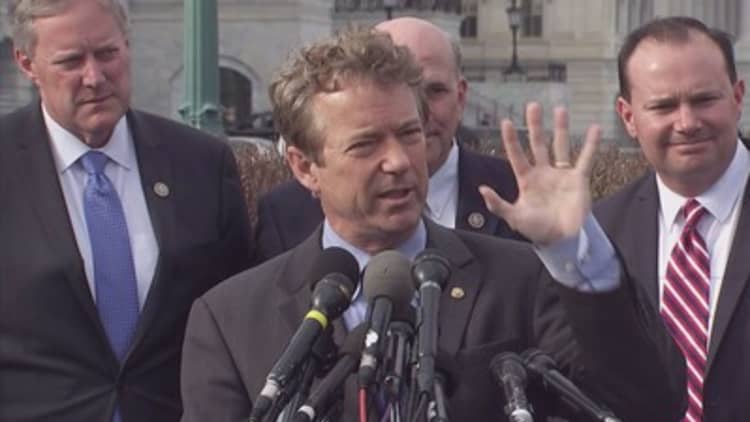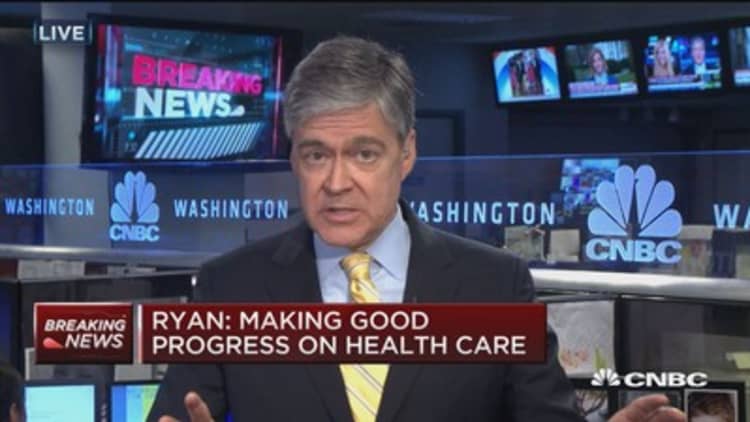
The average premium for a key type of Obamacare plan would need to be hiked by 19 percent to compensate if Congress cuts off a stream of money currently paid to insurers, a new analysis finds.
And the average price hike for Obamacare silver plans would have to be as high as 27 percent in Mississippi and 25 percent in Florida under that scenario, the Kaiser Family Foundation analysis found.
States that did not expand their Medicaid programs to include more poor adults under Obamacare would experience higher premium hikes — 21 percent on average — while states that did expand Medicaid would see premium increases of an average of 15 percent.
Kaiser's analysis came a day after Ceci Connolly, the CEO of the Alliance of Community Health Plans, wrote congressional leaders and warned of premium hikes as high as 20 percent by that group's members if the money is cut off by Congress. Connolly noted that there is an April 28 funding deadline for that money.
The money at risk is used to reduce the out-of-pocket costs of health services and medication for 7.1 million lower-income customers of individual health plans sold on Obamacare exchanges.

Those costs include deductibles, co-payments and coinsurance payments that are personally owed by customers when they go to a doctor, get surgery or fill a prescription.
Kaiser previously has said that the subsidies lowered combined medical and prescription drug deductibles by as much as $3,354 for a customer, and reduced annual out-of-pocket maximums by as much as $5,587. The federal government spent $7 billion on cost-sharing subsidies to insurers last year.
The U.S. House of Representatives had sued to the Obama administration to challenge the legality of the payments being made directly to insurers to subsidize those costs for customers, on the grounds that Congress did not appropriate the money for that purpose.
A federal judge last year ruled in the House's favor. But the Justice Department appealed the decision, staying its effect, and keeping the money flowing to insurers.
Now, however, the Justice Department is being led by Attorney General Jeff Sessions, an appointee of President Donald Trump, an Obamacare opponent.
Sessions is in a position to drop the appeal, but asked the appeals court to wait until May to hear about a possible resolution of the dispute, which could include legislative action. And the Republican-led Congress, which is attempting to repeal and replace key parts of Obamacare, is in a position to refuse to authorize further funding for the program.
But if Congress cut off that money, insurers would still be legally obligated by the Affordable Care Act to maintain the same level of out-of-pocket cost levels for consumers as if they were receiving the funding. In other words, the subsidized customers would still be responsible for less in out-of-pocket costs than nonsubsidized customers are responsible for.
Kaiser's analysis focused on what would happen to "benchmark" silver plan prices in the 38 states that used the federal Obamacare exchange HealthCare.gov in 2016.
Silver plans cover, on average, 70 percent of their customers' health costs, with the remaining portion paid out-of-pocket by customers. A benchmark plan is the second-lowest-cost silver plan in a given rating area.
Watch: Turbulence for GOP after failed health-care bill



